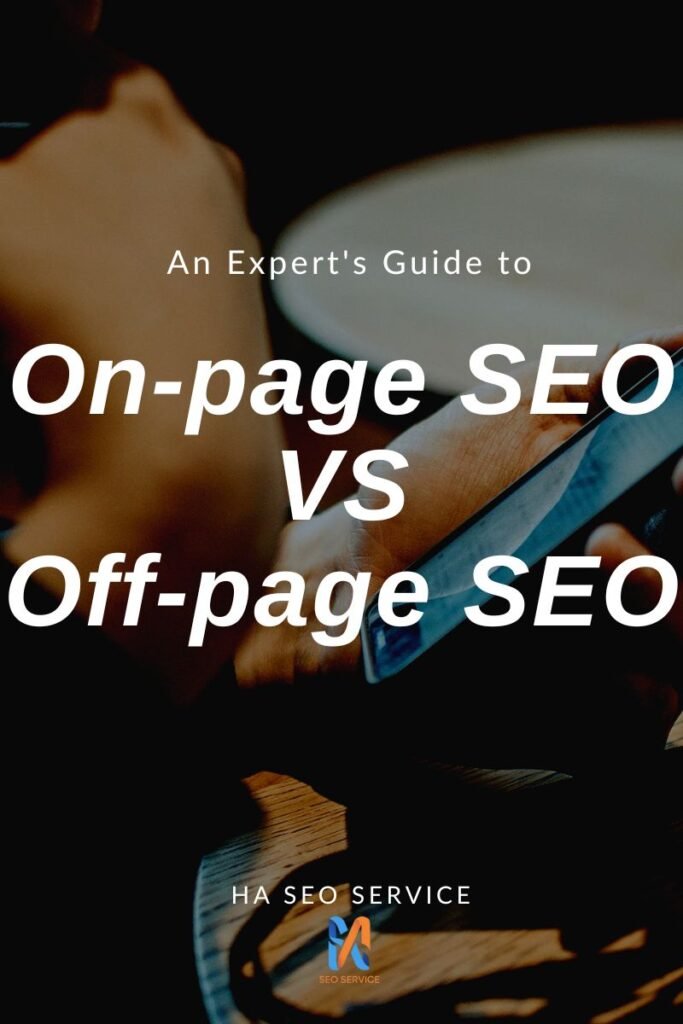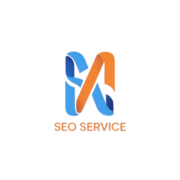
Mastering SEO means understanding the balance between on-page SEO vs off-page SEO. On-page tactics optimize what’s inside your website—content, structure, and user experience. Off-page strategies, on the other hand, build trust and authority through backlinks, brand mentions, and social signals. Many businesses focus heavily on one side and miss the synergy that drives lasting rankings. When both approaches align, your website becomes relevant, credible, and competitive in search results.
This guide breaks down the differences, shares proven techniques, and explains how combining both strategies accelerates growth. Whether you’re a startup or established brand, mastering both sides is essential.
Companies that align both approaches enjoy faster growth, higher engagement, and stronger brand trust. In this guide, we’ll break down what each involves, why both matter, and how to use them effectively.
What is On-Page SEO?
On-page SEO refers to optimizations made directly on your website. These include meta tags, keyword placement, and structured internal linking. A well-optimized page improves visibility and ensures Google understands your content.
For example, businesses improving title tags often see traffic increases of up to 32% Backlink. On-page SEO creates a foundation where content matches search intent, making it easier for users to find what they need.
Key Elements of On-Page SEO
- Optimized meta tags and headers
- Mobile-friendly design
- Fast page speed and image compression
- Logical internal linking strategy
- Use of schema markup
What is Off-Page SEO?
Off-page SEO refers to actions taken outside your website to improve rankings. The most common method is link building, where reputable websites link to your content. Each backlink acts like a vote of confidence.
Off-page factors also include brand mentions and social sharing. Studies show that 91% of web pages receive no traffic because they lack backlinks (Ahrefs). Without authority, even optimized content struggles to rank.
Key Elements of Off-Page SEO
- Backlinks from authority websites
- Social media engagement
- Online PR and brand coverage
- Domain authority growth
On-Page SEO vs Off-Page SEO: The Core Differences
On-page SEO focuses on controllable elements such as content, structure, and user experience. Off-page SEO builds trust through external signals like backlinks and mentions. Together, they influence how Google ranks your site.
| Factor | On-Page SEO | Off-Page SEO |
|---|---|---|
| Focus | Website content & structure | External trust signals |
| Example | Keyword optimization | Link building campaigns |
| Goal | Improve relevance | Build authority & trust |
Why On-Page SEO Matters for Your Website
On-page SEO ensures your website aligns with search engine crawlers and human readers. It improves site navigation, keyword clarity, and content relevance. These updates boost visibility for every page.
Websites with optimized technical SEO load 2x faster, reducing bounce rates. A clear structure and strong content optimization improve both user satisfaction and Google indexing. Start here before moving to external tactics.
Why Off-Page SEO is Crucial for Rankings
Off-page SEO signals authority and credibility to search engines. Earning links from respected domains increases your domain authority and helps build trust. Quality links matter more than quantity.
According to Moz, backlinks remain one of the top three ranking factors. Strong off-page work creates exposure beyond search engines, boosting referral traffic and overall brand visibility.
On-Page SEO Techniques Every Website Should Use
Start with targeted keyword research and optimize content for search intent. Include terms naturally in headers, descriptions, and copy. Use Keyword Research SEO services to find winning opportunities.
Technical improvements like clean URLs, schema markup, and image optimization make a big difference. Regularly update old posts with fresh stats, and improve internal linking for better navigation and ranking signals.
Proven Off-Page SEO Strategies to Boost Visibility
Focus on earning links through guest posting, digital PR, and influencer collaborations. Share content on social platforms to generate natural engagement signals. Outreach to niche sites increases authority.
Try creating unique assets like research reports, infographics, or case studies. These encourage shares and mentions, amplifying link equity. Pair these strategies with Technical SEO fixes for stronger results.
On-Page SEO vs Off-Page SEO: Which Should You Focus On First?
Always begin with on-page SEO. Without optimized content, external links hold less value. Fixing site issues and refining content relevance creates a strong base.
Once your structure is solid, shift focus to backlinks and mentions. The best results come from balancing both strategies over time.
How HA SEO Service Helps With Both On-Page and Off-Page SEO
HA SEO Service builds tailored strategies that combine on-page improvements with powerful link-building campaigns. From technical SEO to digital PR, we help businesses achieve higher rankings.
Our experts focus on measurable growth. Whether optimizing metadata or securing authority backlinks, HA SEO Service ensures your site outranks competitors with proven, sustainable methods.
Final Thoughts: The Balance Between On-Page and Off-Page SEO
On-page SEO builds the foundation, while off-page SEO amplifies your authority. Together, they drive consistent rankings and traffic growth. Neglecting one creates weak spots competitors can exploit.
Investing in both strategies builds trust, visibility, and long-term growth. Ready to take the next step? Partner with HA SEO Service for a customized plan that delivers results.
FAQs
Q1: Which is more important, on-page SEO or off-page SEO?
Both are essential—on-page builds relevance, while off-page boosts authority.
Q2: How long does it take to see results from off-page SEO?
Typically 3–6 months, depending on link quality and competition.
Q3: Can I rank without backlinks?
It’s possible in low-competition niches, but backlinks are vital for competitive terms.
Q4: Do social signals count in SEO?
Yes, while not direct ranking factors, social engagement amplifies visibility and sharing.
Q5: How often should I update my on-page SEO?
Review content and technical elements every 3–6 months for optimal performance.
